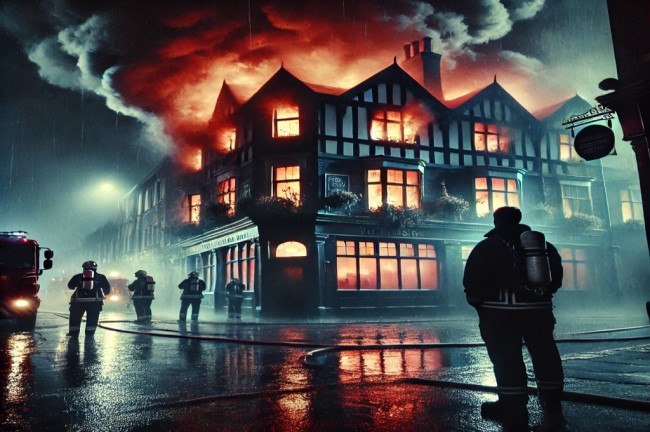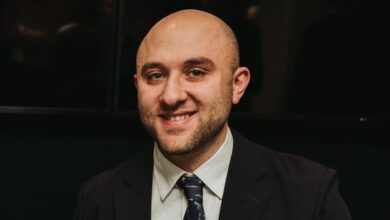Prasiddha Baruwal: The Troubling Case of a 23-Year-Old Everett Resident
Unraveling the Legal and Psychological Complexities Behind the Mission Hill Pub Arson Incident

Prasiddha Baruwal, a 23-year-old from Everett, MA, became the focal point of a high-profile legal case after being accused of setting fire to The Squealing Pig, a popular pub in Boston’s Mission Hill neighborhood. The incident has raised significant questions about mental health and the criminal justice system, as Baruwal was deemed not competent to stand trial and has been committed to a psychiatric hospital for further evaluation. This case underscores the complex interplay between mental health and legal responsibility.
Introduction
Prasiddha Baruwal has recently made headlines, especially in the Everett, MA community, due to a shocking event gripping Boston and its surrounding areas. At just 23 years old, Baruwal stands accused of arson. This act has not only caused considerable property damage but also sparked a broader conversation about mental health and legal accountability. This article delves into the events leading up to the fire, the following legal proceedings, and the case’s implications for the local community and the broader legal system.
The Arson Incident: What Happened?
On June 26, 2024, a fire broke out at The Squealing Pig, a beloved pub in Boston’s Mission Hill. Firefighters quickly contained the blaze, but the damage was extensive, leaving the establishment in ruins. It wasn’t long before investigators traced the fire back to arson. The suspect? Prasiddha Baruwal, a 23-year-old former employee of the pub.
Baruwal had been terminated from his position as a cook just weeks before the fire following allegations of inappropriate behavior toward female colleagues. This fact, combined with his presence at the scene captured on a cell phone video, led to his swift arrest by the Boston Police Fire Investigation Unit.
Legal Proceedings: The Question of Competency
The legal process that followed Baruwal’s arrest has been anything but straightforward. During his initial court appearance, concerns were raised about his mental state. A court-appointed doctor evaluated Baruwal and determined that he did not fully understand the charges against him or the workings of the criminal justice system. As a result, he was declared not competent to stand trial and was committed to Bridgewater State Hospital for a comprehensive mental health evaluation.
The ruling has sparked debate over the intersection of mental health and legal responsibility. On one hand, there is a clear need for accountability when a crime as serious as arson is committed. On the other hand, if an individual is not mentally capable of understanding their actions or the consequences, should they be held to the same standards as someone who is?
Community Impact: Everett’s Response
The news of Baruwal’s arrest and subsequent legal developments have profoundly impacted the Everett community. Residents who knew Baruwal described him as quiet, with no prior history of violent behavior. The incident has left many in shock, struggling to reconcile the person they knew with the serious charges he faces.
The case has also highlighted the need for better mental health resources in communities like Everett. While Baruwal’s actions cannot be excused, there is a growing recognition that more needs to be done to identify and support individuals with mental health issues before they reach a breaking point.
Prasiddha Baruwal: A Complex Individual
Who is Prasiddha Baruwal? To many, he was a young man trying to make a living in Everett, MA. But the events that unfolded on that fateful night in June have revealed a much more complicated picture.
Baruwal’s background is not widely known, but what is clear is that he struggled with significant mental health issues. His inability to understand the charges against him and the subsequent incompetency ruling suggests that these issues were long-standing and perhaps unaddressed.
The Legal Implications
The case against Baruwal raises critical legal questions, particularly around the competency issue. In the United States, the law holds that a defendant must be competent to stand trial, meaning they must understand the nature of the charges against them and be able to participate in their defense. If a defendant is found incompetent, they are typically committed to a mental health facility until they can be restored to competency.
However, the process of restoring competency is not always straightforward, and there are cases where individuals remain in mental health facilities for extended periods, sometimes indefinitely. This raises ethical questions about the balance between protecting public safety and ensuring the rights of individuals with mental health issues.
The Road Ahead: What’s Next for Prasiddha Baruwal?
Baruwal is currently at Bridgewater State Hospital, where he is undergoing further evaluation. His next court appearance is scheduled for later this month, but it is unclear whether he is still being determined to be competent to stand trial by that time. If not, he could remain in the hospital for an extended period as doctors work to restore his competency.
For the community, the incident serves as a stark reminder of the importance of mental health awareness and intervention. It is a call to action for better mental health resources and a more compassionate approach to those struggling with mental illness.
Conclusion
The case of Prasiddha Baruwal is a tragic example of what can happen when mental health issues go unaddressed. While his actions have caused significant harm, they also underscore the need for a more nuanced approach to justice—one that takes into account the mental state of the accused.
As the legal process continues, this case will likely spark further discussion about how best to balance the need for public safety with the rights of individuals with mental health issues. All eyes will be on the court as it decides the next steps in this complex and troubling case.



